In 2016 Demark and Vietnam celebrated 45 years of diplomatic relations, where the two countries in recent years have seen the transformation to a closer partnership in trade and investment. The many years of close development cooperation has created a very strong partnership and friendship that forms the basis for this – with a focus on commercial, political, cultural and environmental issues.
In this second ScandAsia article, Denmark’s Ambassador to Vietnam H.E Charlotte Laursen describes Vietnam further in terms of the potential for business and trade, the most interesting sectors for Danish companies and solutions and how the Danish Embassy and how its economic and commercial section can assist market entrance.
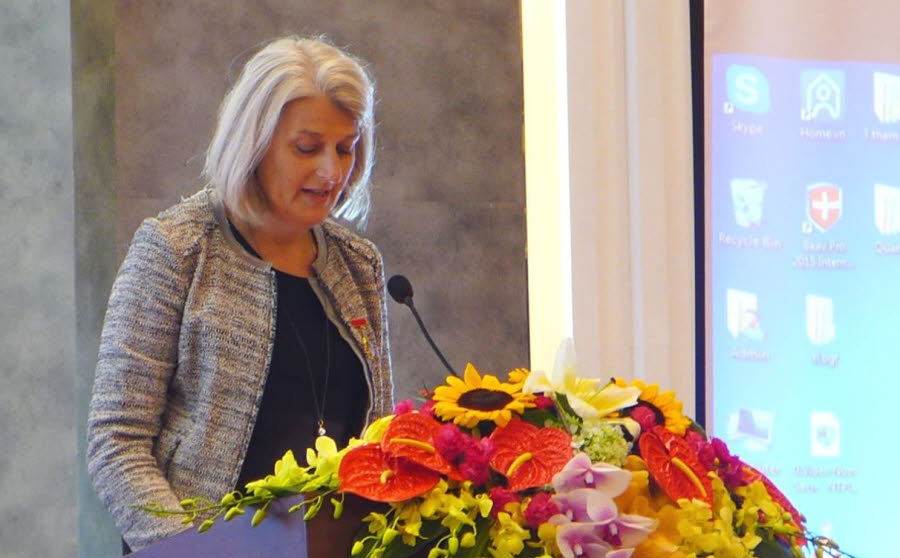
Please describe Vietnam’s business climate and why Vietnam could be of interest for Scandinavian companies to consider for future production/retail.
Vietnam has a motivated population, who wants to contribute to the country’s continued development. The economy is expanding at a rapid pace and new markets are opening fast. This characteristic makes the Vietnamese business climate interesting for many companies. At the same time, Vietnam is interesting as a country for labour intensive production, since wage rates are well below production countries such as India and China. This in combination with a young and increasingly well-educated population makes it interesting for Scandinavian companies to look towards Vietnam as a potential destination of production.
Moreover, the substantial increase in the Vietnamese income level has created a middle class interested in high quality goods and services. As Scandinavian companies are providing such products and services, this development brings new market opportunities for the retail sector.
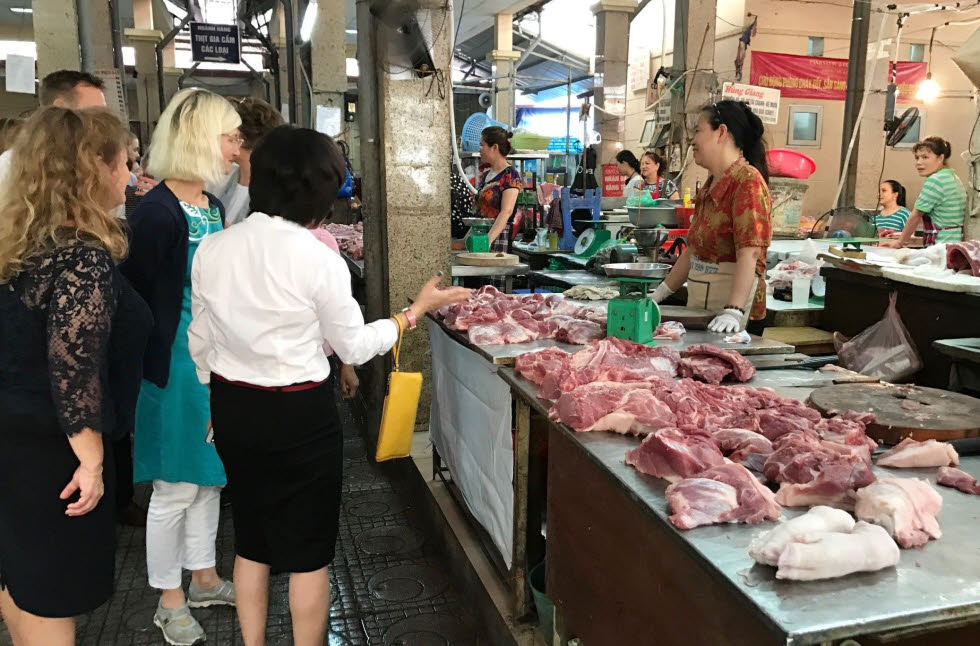
How can the Embassy assist Danish companies if they want to enter the Vietnamese market either with production or resale? Could you give an insight to our readers of how the Embassy is organized?
The embassy’s assistance to Danish companies is demand-based and depends on the company’s needs and requests. The assistance is facilitated by the Commercial Section, an integrated part of the embassy with a unit in Hanoi and a satellite office in Ho Chi Minh city. The assistance may consist of three phases: Phase 1 provides market overview and regulatory analysis. If the company chooses to continue, the embassy can begin Phase 2 where a business strategy is developed. This includes advising on which corporate structure is the most suitable, domestic tax import-export regulations and customs, location and labour search etc. Phase 3 involves execution of the actual project, which often includes consultations with authorities and business as well as arrangement of investment registration certificates. The embassy may also assist in the post establishment, which involves product registration, recruitment, work permit applications etc.
Besides the commercial section, the embassy has sections working with political and economic affairs, culture and communication, consular and visa matters, and administration. This organization enables us to combine knowledge between sections, which is highly useful for our productivity.
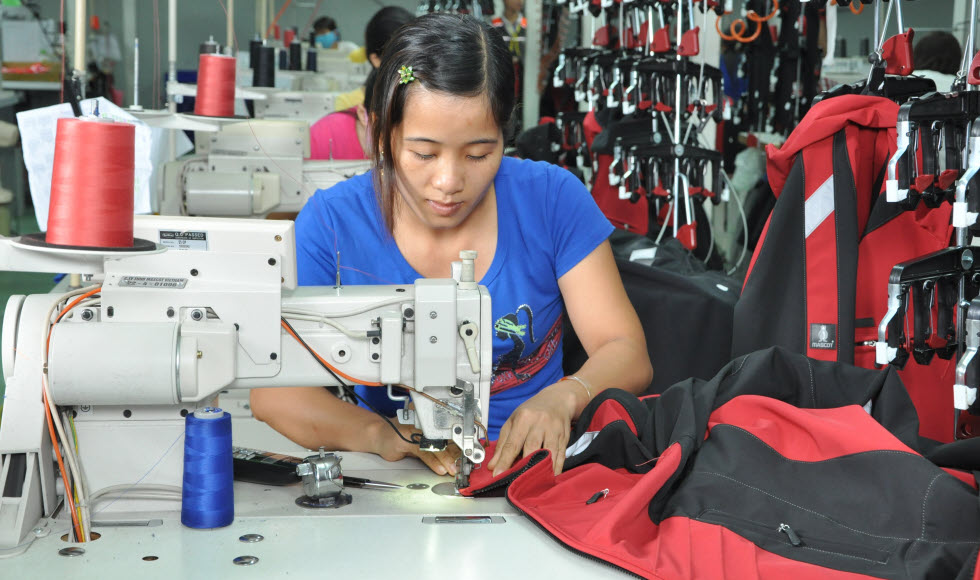
Which sectors are the most interesting for Danish companies in Vietnam?
Of the about 130 Danish companies operating in Vietnam today, many are within traditional sectors such as textiles and furniture, e.g. Mascot and Scancom but there are also companies in high-tech sectors such as information and communication technology, electronics and software, e.g. Pixelz and Esoftflow.
In recent years, we have seen a trend that also Danish retail companies approach the Vietnamese market, e.g. JYSK and Osterberg, which is quite promising.
Some of the Vietnamese business sectors we believe could be interesting in the future are the food industry, as the Vietnamese people have a growing awareness of food safety and healthy clean products; and the energy sector, which is an important factor within Vietnam’s search for sustainable economic growth.
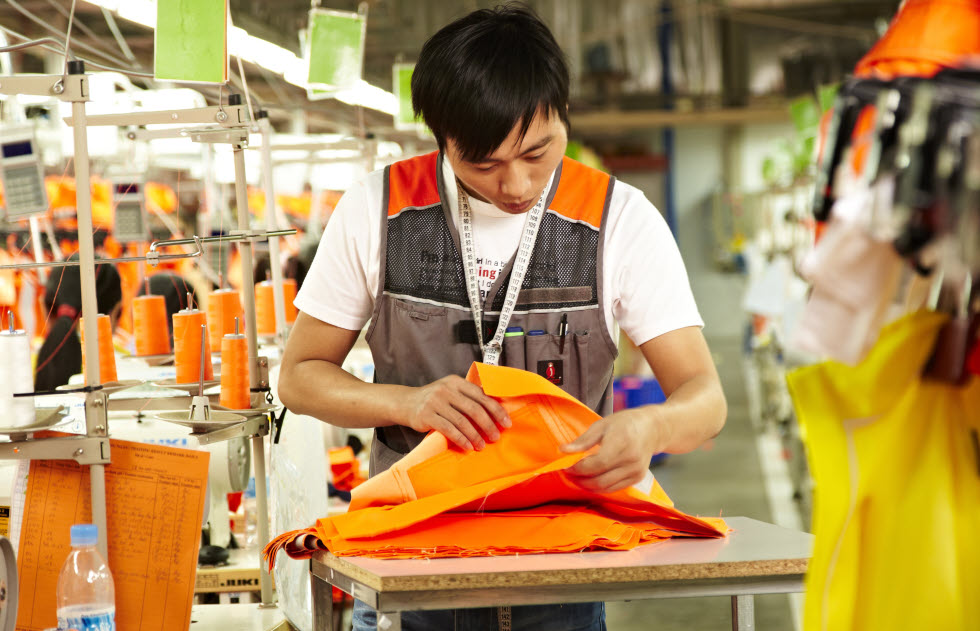
Are there any other opportunities and discussion with Vietnam that has led to and could lead to more/new business opportunities for Danish businesses, corporations as well as SMEs?
In the Danish Trade Council, we always look for new business opportunities for Danish companies. An additional sector I could mention is the health sector. With Vietnam’s rapid development also comes a rapid change of lifestyle. This leads to increase in non-communicable diseases such as diabetes and similar chronic diseases, an area where Denmark and Danish companies have extended knowledge.
However, for an SME with a small niche product, entering the Vietnamese market may look as an insurmountable task. For such companies, one way could be to engage in a Strategic Business Alliance with other SMEs. The principle behind Strategic Business Alliances is that companies with individual niche products, which can be combined to provide a full solution to a specific problem, unite and enter a market together. This concept is expected to ease the burden for the companies involved and improve the possibilities for success.
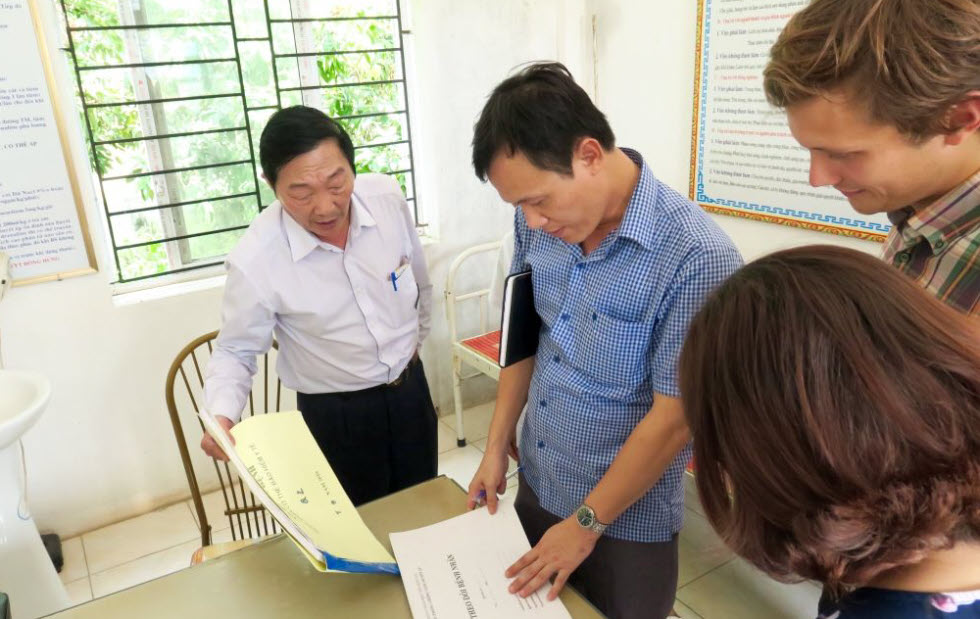
In 2015 Strategic Sector Cooperation (SSC) was introduced to Vietnam. Can you share some insights into how it works, which sectors the Vietnamese-Danish cooperation is focusing on and why these sectors were chosen?
The SSC cooperation is a new significant tool under the “Partnering with Denmark” concept, available already in 12 countries. The selection procedure for the sectors under this initiative was rather meticulous. It involved the relevant embassies in eligible countries. All Danish ministries were invited to propose relevant focus areas and countries and last, but not least, all the eligible countries were involved in the very first considerations of priorities.
The interest to cooperate with Vietnam has been very positive and very strong, with four Danish ministries in the end been selected for cooperation. Following a strategic selection, four projects have been approved and two growth counsellors have joined the embassy to initiate and support the implementation of the projects. The selected areas are food safety, environment, health and vocational education. These areas are obviously very broad, and a considerable joint Vietnamese – Danish effort has been devoted to carve out the specific areas of cooperation and intervention.
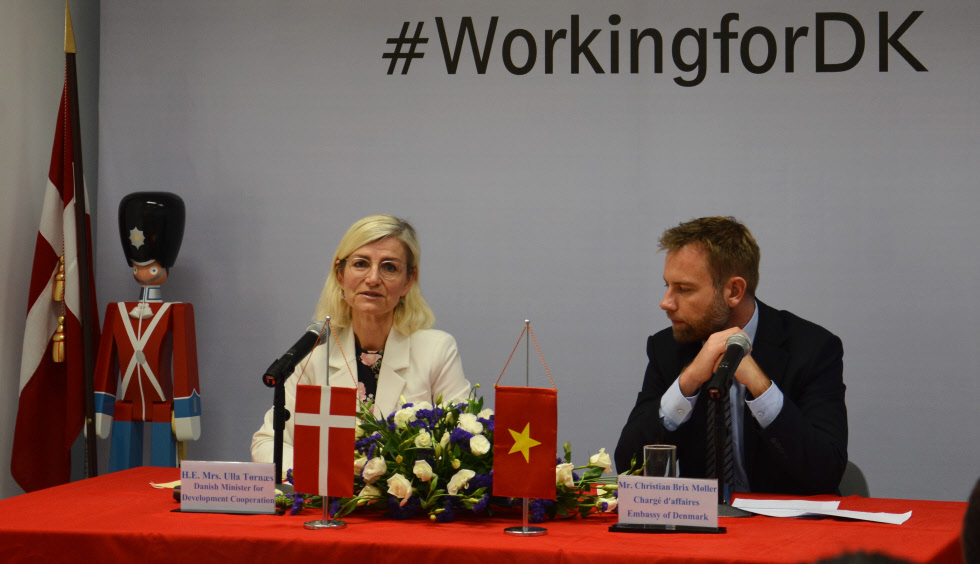
For companies operating in Vietnam access to a work force with the right knowledge and/or education is crucial. How do you see these perspectives for Danish companies?
Accessibility to skilled labour is crucial for companies, and is important for continued development of a country. However, it is also important to have the right match between skilled labour and companies’ demands, and here it is our impression that there are some challenges for Danish companies.
In the Strategic Sector Cooperation project on education, we try to build a model for closer and more systematic cooperation between vocational schools and enterprises. The idea is to create a better match between companies’ demands for skilled labour and the qualifications of graduates. Given the magnitude of the number of school/colleges and young people in Vietnam, it will take time before an impact is measurable.
![]()
How are Vietnam and Denmark collaborating on this area? E.g. are there partnerships within vocational training between Vietnamese and Danish educational institutions?
Vietnam and Denmark are collaborating very concretely on this topic. The Danish Ministry of Education is working closely with the Vietnamese Ministry of Labour Invalids and Social Affairs who is responsible for the Technical and Vocational Education and Training (TVET) sector. The project is within the framework of Strategic Sector Cooperation, and builds a framework for school-enterprise cooperation. Four selected schools have already set up Local Working Groups to develop ideas for the cooperation, and are establishing Local Occupational Skills Councils, which will be the forum for school-enterprise-authority cooperation. The schools are eager – but they are also struggling to attract good students.
Vocational education should not just be the “second choice” for young people – it should be the first choice for many. Companies and society share the responsibility in explaining about career opportunities inside the companies and in making vocational education a good and strong career choice – a challenge of course which is shared among many countries in Asia as well as in Europe, including Denmark.
Factbox
Pricewaterhouse Coopers projections:
• Estimated annual real GDP growth between 2016-2050: 5.1%
• Vietnam is expected to move up from no. 32 on GDP (PPP) in 2016 to no. 20 in the world by 2050
• Due to relatively low population growth, the real growth per capita is expected to be 4.5% p.a. from 2016 to 2050
Facts:
• From 2010 to 2016, Danish ODA has decreased from DKK 371 m to DKK 21 m. In the same period, Danish export to Vietnam increased from DKK 749 million to DKK 3,003 million.
• Among the EU countries, Denmark has the highest export of goods per capita to Vietnam, reaching 65 € pr. in 2016, and the largest trade surplus in absolute terms, exceeding € 115 million.

